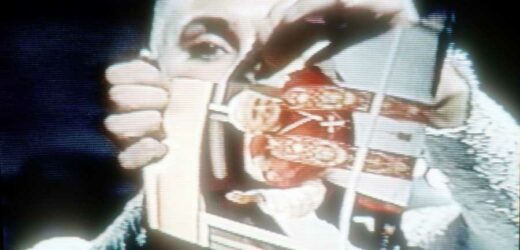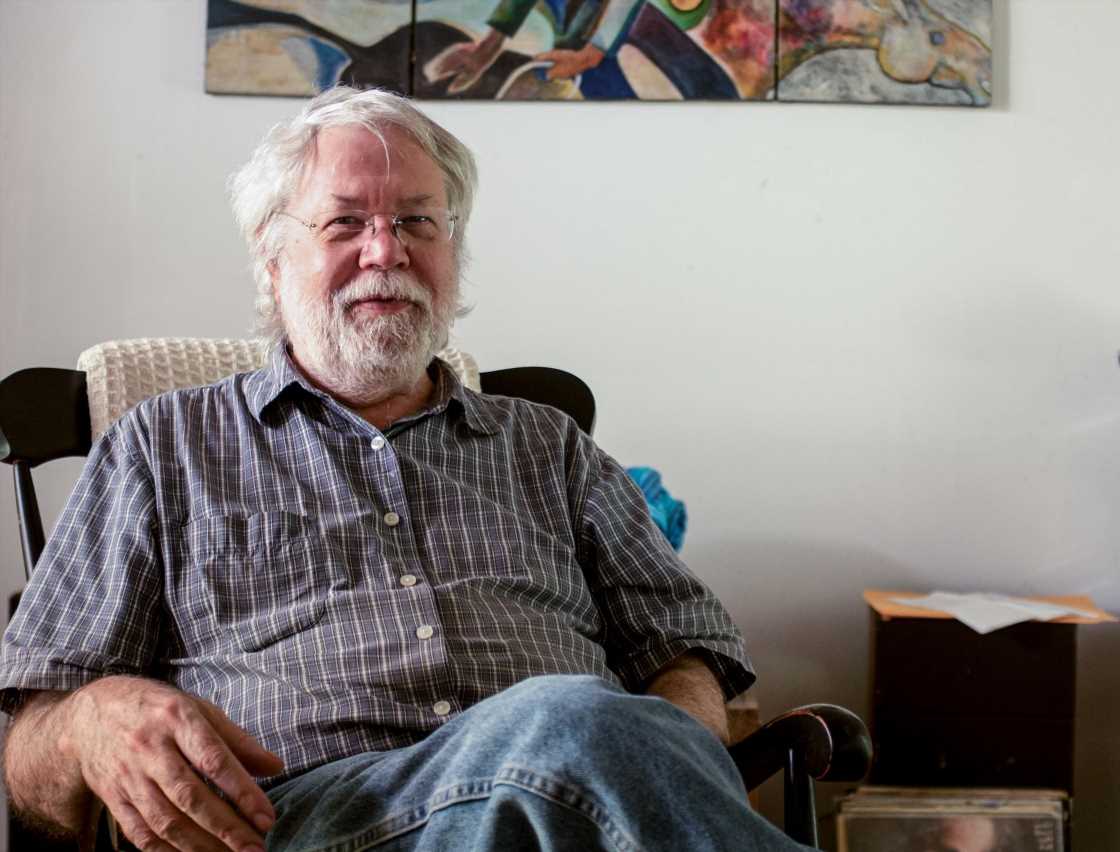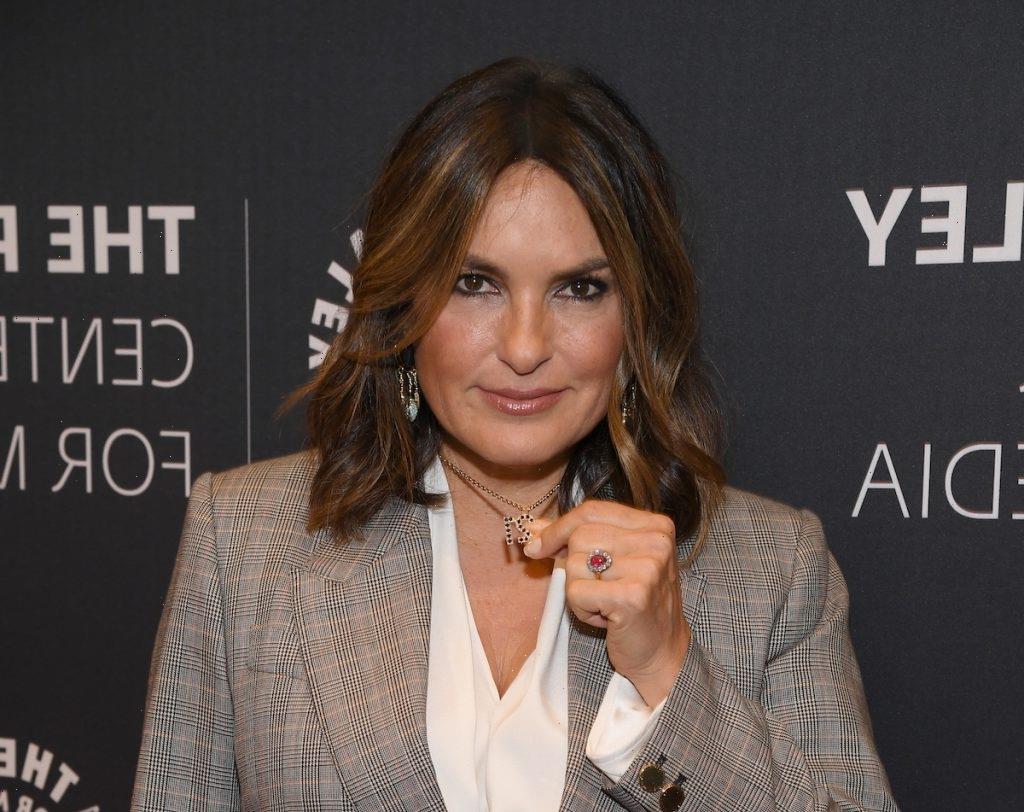In the early Nineties, few pop stars were as visually and vocally striking as Sinéad O’Connor. With her shaved head, piercing gaze, and voice that could be tender or steely, the Irish-born O’Connor had gone mainstream with her 1990 album I Do Not Want What I Haven’t Got and its omnipresent hit and video — a cover of Prince’s “Nothing Compares 2 U.” But O’Connor was never fully comfortable with the rules and limitations of pop stardom, and she grappled with issues from her childhood and home country.
In 1992, she released her next album, a collection of covers called Am I Not Your Girl?, and was invited to perform on Saturday Night Live to promote it. As she writes in this excerpt from her new memoir, Rememberings (Houghton Mifflin Harcourt, June 1), she was by then living in New York, where she began frequenting a downtown juice bar home to Rastafarians. One of them, a man named Terry, became a close friend. Just before O’Connor began rehearsals for SNL, Terry confessed to her that his real job was running drugs and guns — using schoolchildren as “mules” who would carry the illegal goods in their schoolbags — and also told her that he would likely soon be killed by a rival dealer.
With that and other troubles on her mind, O’Connor began formulating ways to make a statement when she played SNL on October 3rd, 1992. What happened next would change her career forever: She was banned from NBC for life and was booed offstage at a Bob Dylan tribute concert a few weeks later. But as she writes, O’Connor had — and still has — no regrets about any of it.
The day my mother died, myself and my siblings went inside her house for the first time in several years. Our own secrets to seek. Not hers. There were still broken plastic swans in the bathroom. Resolute. Long-necked. Frozen. As if nothing had happened.
I took down from her bedroom wall the only photo she ever had up there, which was of Pope John Paul II. It was taken when he visited Ireland in 1979. “Young people of Ireland,” he had said after making a show of kissing the ground at the Dublin airport like the flight had been overly frightening, “I love you.” What a load of claptrap. Nobody loved us. Not even God. Sure, even our mothers and fathers couldn’t stand us.
In 1978, Bob Geldof ripped up a photo of Olivia Newton-John and John Travolta on Top of the Pops because their shit record “Summer Nights” had been number one for seven weeks and finally Geldof’s Boomtown Rats’ single “Rat Trap” had taken over.
“I know if I do this there’ll be war. But I don’t care. I know my Scripture. Nothing can touch me.”
My intention had always been to destroy my mother’s photo of the pope. It represented lies and liars and abuse. The type of people who kept these things were devils like my mother. I never knew when or where or how I would destroy it, but destroy it I would when the right moment came. And with that in mind, I carefully brought it everywhere I lived from that day forward. Because nobody ever gave a shit about the children of Ireland.
I’ve woken after going to bed at 6 a.m. It’s 1 p.m. Only a few hours until camera rehearsal for SNL. I’m to perform two songs, the second of which is Bob Marley’s “War,” a cappella. The lyric is actually a speech given to the United Nations by the Ethiopian emperor Haile Selassie in New York in 1963 about racism being the cause of all wars. But I’m gonna change a few lines to be a declaration of war against child abuse. Because I’m pissed at Terry for what he told me last night. I’m pissed he’s been using kids to run drugs.
And I’m pissed he’s gonna be dead by Monday.
It also happens I’ve been pissed off for a few weeks because I’ve been reading The Holy Blood and the Holy Grail (a contrarian, blasphemous history of the early church) but also finding brief articles buried in the back pages of Irish newspapers about children who have been ravaged by priests but whose stories are not believed by the police or bishops their parents report it to. So I’ve been thinking even more of destroying my mother’s photo of JP2.
And I decide tonight is the night.
I bring the photo to the NBC studio and hide it in the dressing room. At the rehearsal, when I finish singing Bob Marley’s “War,” I hold up a photo of a Brazilian street kid who was killed by cops. I ask the cameraman to zoom in on the photo during the actual show. I don’t tell him what I have in mind for later on. Everyone’s happy. A dead child far away is no one’s problem.
“When I walk backstage, literally not a human being is in sight. All doors have closed.”
I know if I do this there’ll be war. But I don’t care. I know my Scripture. Nothing can touch me. I reject the world. Nobody can do a thing to me that hasn’t been done already. I can sing in the streets like I used to. It’s not like anyone will tear my throat out.
Showtime. I’m wearing a white lace dress that once belonged to Sade. I bought it at a rock & roll auction in London when I was 19. Paid 800 pounds for it. It’s beautiful. There’s a coin-size lead weight in each side of the slit at the back, to keep it straight and make it hang ladylike.
Very clever. A dress for women to behave badly in. One day maybe I will have a daughter who gets married in it.
So the show goes on. First song, “Success Has Made a Failure of Our Home,” is a dream. Plenty of people milling about backstage afterward — producers, managers, makeup artists, and fellow guests. I’m the flavor of the month. Everyone wants to talk to me. Tell me how I’m a good girl. But I know I’m an impostor.
Second song is set up beautifully. With one candle beside me and my Rasta prayer cloth tied to the microphone, I sing “War” a cappella. No one suspects a thing. But at the end, I don’t hold up the child’s picture. I hold up JP2’s photo and then rip it into pieces. I yell, “Fight the real enemy!” (I’m talking to those who are gonna kill Terry.) And I blow out the candle.
Total stunned silence in the audience. And when I walk backstage, literally not a human being is in sight. All doors have closed. Everyone has vanished. Including my own manager, who locks himself in his room for three days and unplugs his phone.
“I understand I’ve torn up the dreams of those around me. But those aren’t my dreams.”
Everyone wants a pop star, see? But I am a protest singer. I just had stuff to get off my chest. I had no desire for fame. In fact, that’s why I chose the first song. “Success” was making a failure of my life. Because everyone was already calling me crazy for not acting like a pop star. For not worshipping fame. And I understand I’ve torn up the dreams of those around me. But those aren’t my dreams. No one ever asked me what my dreams were; they just got mad at me for not being who they wanted me to be. My own dream is only to keep the contract I made with God before I ever made one with the music business. And that’s a better fight than murder. I gotta get to the other side of life.
I am in my dressing room with my personal assistant, Ciara. We pack up my bags and leave the building. Outside 30 Rock, two young men are waiting for me and they throw a load of eggs at us both. But what they don’t know is myself and Ciara are able to run a hundred meters in 11.3 seconds. So we run after them when they flee. We catch up with them in some alley. They are leaning, gasping for breath, against a black fence they didn’t have the strength to climb. All we say, laughing at them, is “Hey, don’t be throwing eggs at women.” The two of them are so shocked at being chased and caught that they start laughing too, and it all ends very friendly. They straighten up and help us find a cab back to the hotel. The matter is being discussed on the news and we learn I am banned from NBC for life. This hurts me a lot less than rapes hurt those Irish children. And a lot less than Terry dying. Which happens on the following Monday anyway.
A lot of people say or think that tearing up the pope’s photo derailed my career. That’s not how I feel about it. I feel that having a number-one record derailed my career and my tearing the photo put me back on the right track. I had to make my living performing live again. And that’s what I was born for. I wasn’t born to be a pop star. You have to be a good girl for that. Not be too troubled.
“Far from the pope episode destroying my career, it set me on a path that fit me better.”
I wasn’t comfortable with what other people called success because it meant I had to be as others wanted me to be. After SNL I could just be me. Do what I love. Be imperfect. Be mad, even. Anything. I don’t define success as having a good name or being wealthy. I define success by whether I keep the contract I made with the Holy Spirit before I made one with the music business. I never signed anything that said I would be a good girl.
I have supported my four children for thirty-five years. I supported us by performing live, and I became, if I may say so, a very fine live performer. So, far from the pope episode destroying my career, it set me on a path that fit me better. I’m not a pop star. I’m just a troubled soul who needs to scream into mikes now and then. I don’t need to be number one. I don’t need to be liked. I don’t need to be welcome at the AMAs. I just need to pay my yearly overheads, get shit off my chest, and not compromise or prostitute myself spiritually.
So no. It wasn’t derailed. It was re-railed. And I feel I’ve been extremely successful as a single mother providing for her children.
Excerpt from REMEMBERINGS by Sinead O’Connor. Copyright © 2021 by Universal Mother, Inc. Available June 1, 2021 from HMH Books & Media.
Source: Read Full Article


